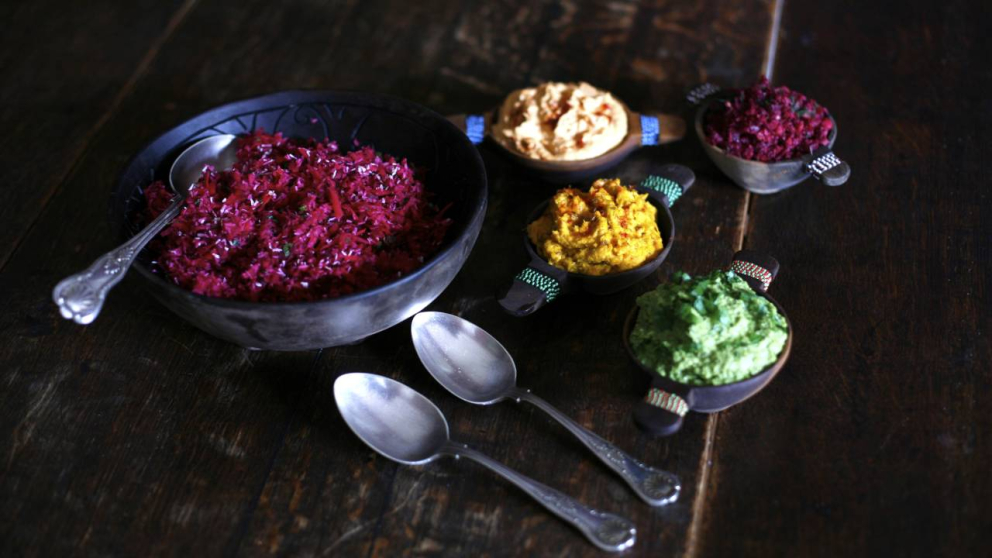Growing Awareness - incredible veg varieties
Welcome to the latest garden news-post with our Apprentice Gardener Amy Cairns
Look out for incredible vegetable varieties here this year!
Signs of spring are all around us at Sharpham, from the blossoming of the witch-hazels to the appearance of the snowdrops and crocuses - new life is certainly arriving in the grounds day by day.
In the garden we have spent the winter months planning and envisioning the next growing season and now it's almost time to sow the first seeds for the greener months ahead. Our seed orders have started arriving and we are excited to grow some new and interesting varieties this year, including:
- Wrinkled Crinkled Crumpled Cress - a curly, ruffled cress with a sweet tang
- Agretti / Salsola - fronds of succulent, mineral-tasting green vegetable
- Vibrant Joy pak choi - a purple veined oriental green
- Trombocino squash - an heirloom variety squash with a very unusual shape and a climbing habit
- East Friesian Palm Kale - an ancient German kale variety which has been grown for thousands of years by small-scale farmers
- Elf Ears Oak and Little Leprechaun lettuces - beautiful ecologically produced varieties from Vital Seeds
One of the most important decisions for every gardener when preparing to buy seeds is making the choice between open-pollinated and heirloom seed varieties vs. the hybrids (F1s). Each of these seed types has something to offer, depending on the gardener's needs, interests, and values.
Open-pollination is when pollination occurs naturally (by insect, bird, wind, humans). Because there are no restrictions on the flow of pollen between individuals, open-pollinated plants are more genetically diverse.
An heirloom variety is a plant variety that has a history of being passed down within a family or community down the generations.
Hybridisation is a controlled method of pollination requiring human intervention. Often labeled as F1, the first generation of a hybridized plant cross produces higher yields than the parent varieties due to a phenomenon called ‘hybrid vigor’. However, any seed produced by F1 plants is genetically unstable and cannot be saved for use in following years. Gardeners who use hybrid plant varieties must purchase new seed every year.
Bryony and I prefer to choose as many open-pollinated varieties as possible to help conserve the genetic diversity of garden vegetables and prevent the loss of unique varieties in the face of dwindling agricultural biodiversity.
There's the added reward of growing incredible and unusual vegetable and salad leaves that are new to many people.
These beautiful old varieties also come with their own stories, creating an historical connection to gardening and food production down the years, building a more sustainable future by working with our growing heritage.
Find out more about Sharpham's gardens here










